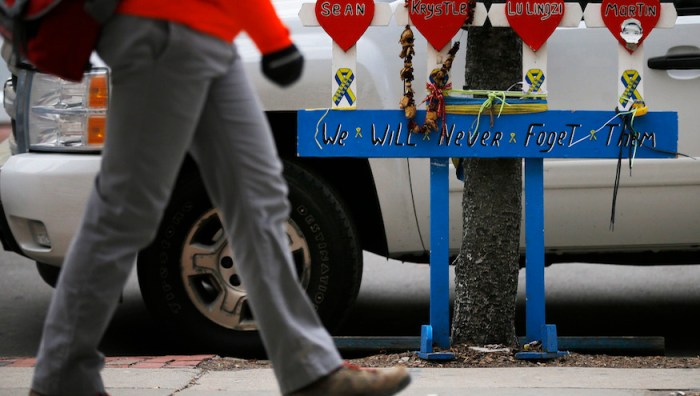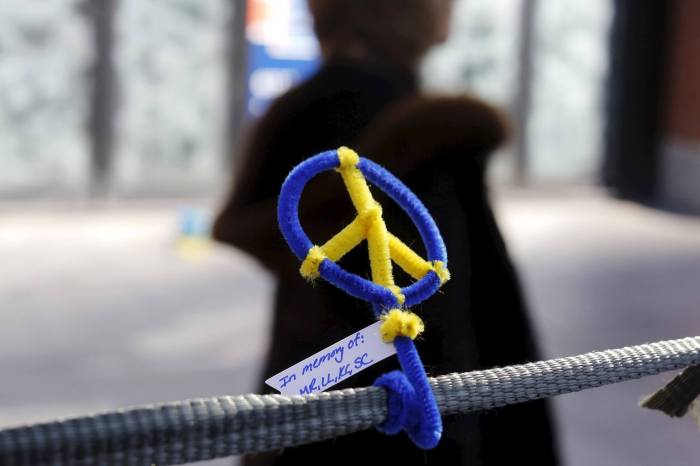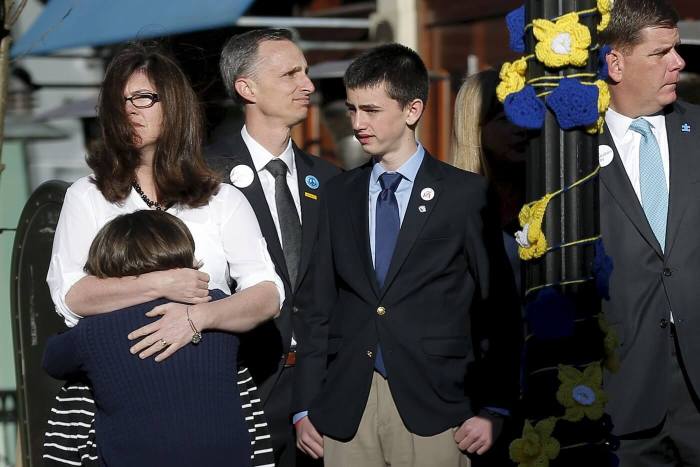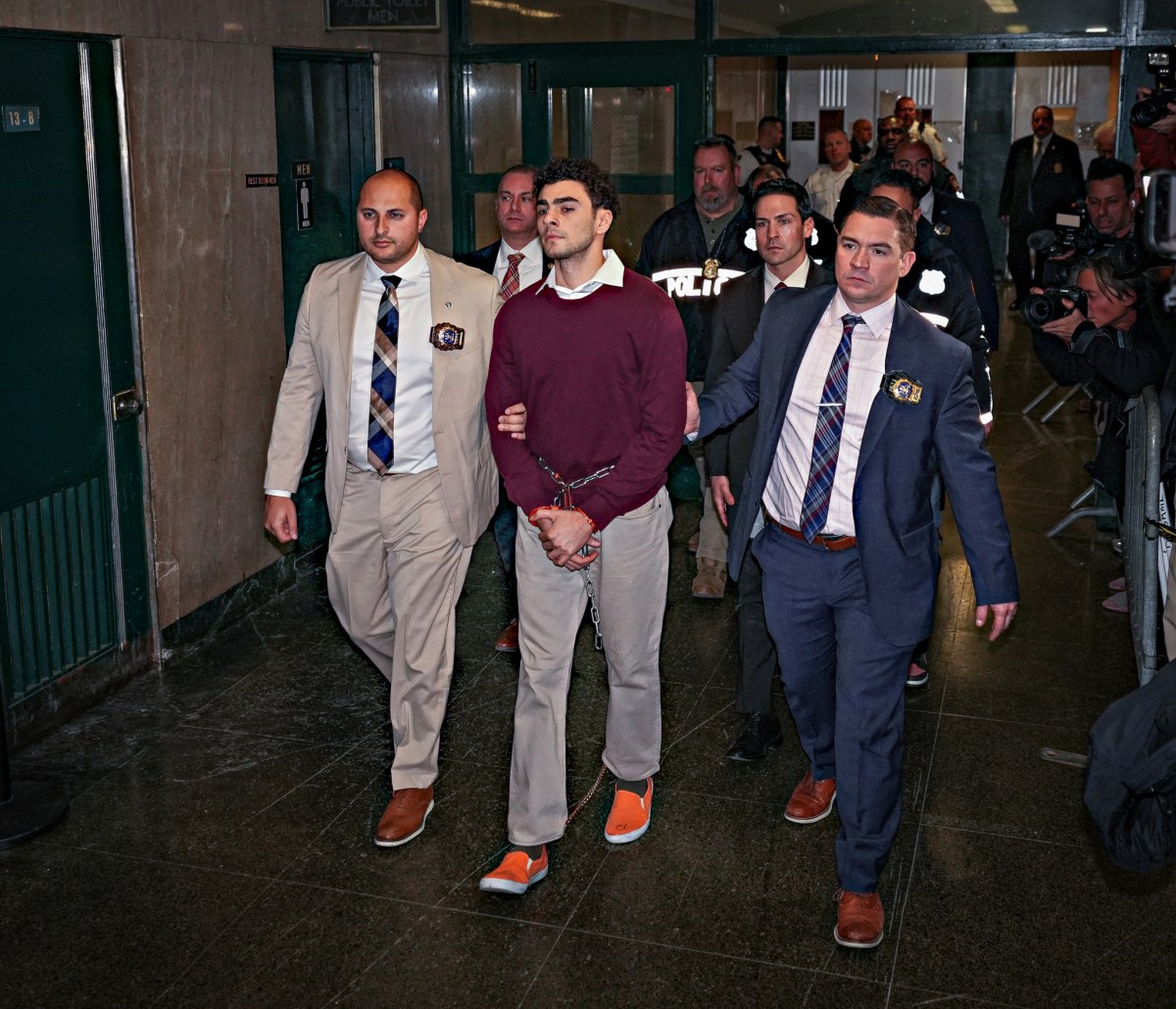Hundreds gathered at the North Court on the MIT campus in Cambridge Wednesday to honor the life of MIT Police Officer Sean Collier and celebrate “Collier Strong” at the unveiling of a large granite memorial on Wednesday. Collier was shot and killed on the night of April 18, 2013, three days after the bombing of the Boston Marathon, after he encountered Marathon bombers Tamerlan and Dzhokar Tsarnaev on the MIT campus. Professor J. Meejin Yoon, Head of the Department of Architecture and the Collier Memorial Project, teamed up with Suffolk Construction to build the massive five-way stone vault made of 32 solid blocks of granite on the corner of Vassar and Main Street in Kendall Square. The design team endured the blizzards of February and the struggles of logistics to create this permanent monument designed to represent “Collier Strong.” The structure is adorned with inscriptions reading “In the line of duty, Sean Collier, April 18, 2013” and an epitaph from Collier’s brother, Rob’s eulogy reading, “Live long like he would. Big hearts, big smile, big service, all love.” MIT President L. Rafael Reif praised the team of faculty, staff and students involved in the project and thanked them for their vision and their efforts.
“Two years ago, when our community first came together to mourn Officer Collier, we saw a display of strength more than we thought was possible,” Reif said. “We saw courage, connection, generosity, kindness and endurance. Qualities that are always there, but not often revealed. And we all understood what it meant to be Collier Strong.” MIT Police Chief John DiFava remembered the evening of Friday, April 19th when the shelter-in-place was lifted and the site of Collier’s death became an impromptu memorial. He said that what began with stuffed animals, poems, flowers, baseball caps and religious cards became a more permanent makeshift shrine that wove itself into the daily life of MIT and Cambridge in gratitude for Collier’s sacrifice. “It became crucial for the community to honor this sacred ground,” DiFava said. “They visited day and night to honor and to remember.”
Still ‘Collier Strong’
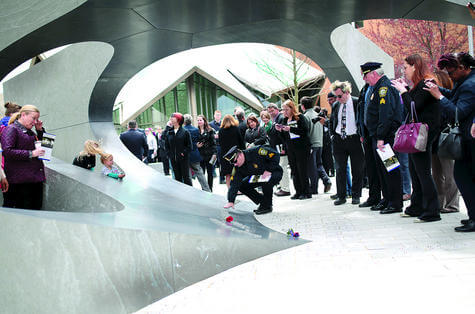
PHOTO BY NICOLAUS CZARNECKI/METRO

